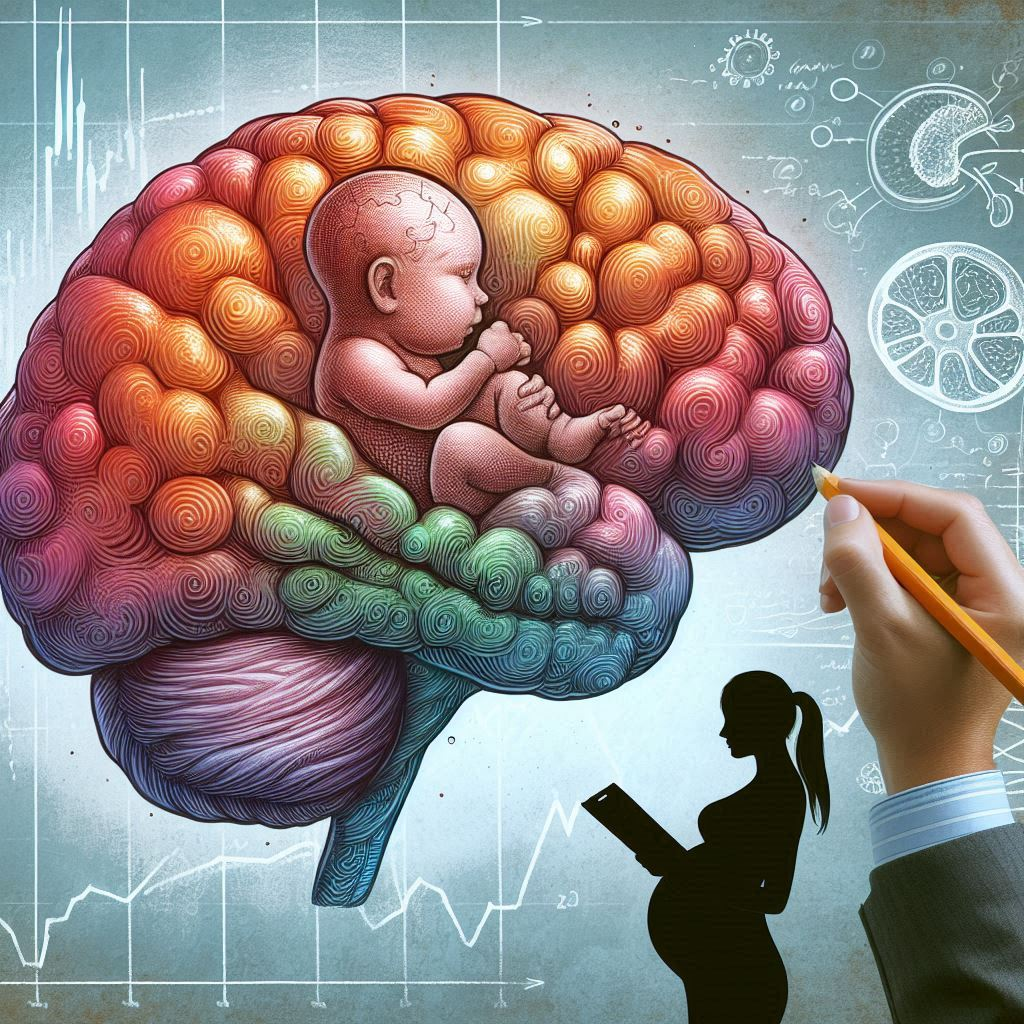Expecting moms may experience ‘pregnancy brain,’ a mix of memory lapses and cognitive struggles due to hormonal changes.
When you’re expecting a new life popping out of you, you might be feeling all kinds of emotions. Every day can feel like surfing on a high tide in the middle of a storm or if you’re lucky, you can be basking in the warmth of a sunny day in the Pacific Ocean (not literally!). One day you are dealing with swollen feet or just another day, another food craving or some mushy mental state. During pregnancy and early motherhood, the mother might also experience some brain fog – including straining yourself to remember details, and the inability to concentrate properly or focus on a particular task.
This cognitive struggle is casually referred to as ‘baby brain, pregnancy brain, momnesia or pregnesia’. While all of these effects could be due to sleep deprivation, exhaustion, stress, and anxiety, you can blame it on hormones too and apparently, there is enough evidence to do so.
Just as the hormonal and physiological shift in pre-teen and teenage prepares for and impacts the shaping of adulthood, similar changes prepare an expecting mother for motherhood. Analogous to adolescence, matrescence is a timeframe when the body and brain gets briefing for the transition to motherhood as a life stage.
However, the physiological transformations due to hormonal fluctuations during pregnancy, birth and lactation are unparallel across the lifetime. Moreover, these biological changes are also followed by the restructuring of emotional, physical and social realms of life.
Neurological transformations of matrescence
First, let’s consider pregnancy-induced brain fog; approximately 80% of new moms experience cognitive decline during matrescence. A recent study published in Nature Neuroscience has revealed that the cortical (cerebral cortex) volume is reduced in maternal brain even before the child birth. It is the area that forms the brain’s outer layer and holds the large concentrations of neurons which are involved in cognitive processing including decision-making, memory, attention, regulation of emotions and mental health.
The cerebral cortex is predominantly composed of grey matter, a decrease in which is associated with the ability to process emotions in life in a healthy way. Fascinatingly, the loss of grey matter is also associated with so-called nesting behaviors, which are exhibited to prepare for the arrival of baby – for instance, setting up a nursery or making the home baby-proof.
The neuroanatomical changes associated with maternal instincts before the child birth transform the mother in preparation for and in response to baby’s needs, enabling new mothers to manage the demanding tasks of motherhood and foster strong bonds with the child.
Hormonal action on baby brain
The adaptations to motherhood are also attributed to hormones associated with parturition (birthing) which are considered to activate parental circuits.
Traditionally, it was believed that the maternal instincts develop after the birth when the mother interacts with her baby. Now we understand that certain changes in the body, such as milk production, begin way before birth and, similarly, changes are also anticipated to occur in an expectant mother’s brain.
The major surge of hormones during pregnancy – mostly estrogen and progesterone – has been deemed responsible for the behavioral changes during pregnancy. When an embryo gets implanted, the placenta produces an indicator of pregnancy – human chorionic gonadotrophin (hCG).
The hCG hormone stimulates corpus luteum for the production of progesterone which is essential to sustain pregnancy. In turn, progesterone regulates the production of estrogen by the ovaries. The region of brain critical for parental instincts – medial preoptic area (MPOA) – is also (by no surprise) under the control of these hormones.
Although the substantial evidence of temporary cognitive decline is robust, how pregnancy hormones affect the parenting circuits towards a baby-centric behavior has remained obscured.
A study published in Science provides insight about the action of these hormones on the MPOA region of pregnancy brain in mice. The hormonal milieu of pregnancy propels parental behavior towards the baby and these behavioral shifts are maximal at the late stages of pregnancy. The expecting mice showed more attention towards pups when placed in contact with them as compared to male mice, food and other stimulus.
These alterations (or baby brain) cause a shift in priorities for the new moms. The team of researchers found that by ablating the neurons or making them non-responsive to the hormones, the animal no longer behaves like a parent and lacks affection towards the baby. However, there is a critical period when these pregnancy hormones show their effect. The research team further suggests that the human brain might also be re-wired in an analogous way, with the hormones impacting the similar parts of the human brain.
Lingering effects of pregnancy
Until recently, the prevailing notion about the physiological as well as neural changes was that they are resolved and return to baseline pre-pregnancy levels in the postpartum period. But if you believe so, you’re in for a surprise. Researchers have also found that although complexity of motherhood causes cognitive challenge to the new moms, it ultimately results in enhanced cognitive reserves in the late stages of life. Now, one might wonder what other mechanism could possibly impart long-lasting effects on maternal physiology.
Well, evidence suggests that fetal microchimerism – presence of fetal cells in mother’s body – during pregnancy can prompt neuroplasticity-related lifelong benefits in moms. In male microchimerism, the fetal cells become neurons that are then integrated into the mother’s existing neural circuitry in brain, especially in hippocampus.
Just as the nature meticulously plans ahead for the impending transformations, the human body synchronizes with its rhythmic patterns. As the rain sets the sky’s tone for a rainbow, leaf shedding precedes new blossoms, and bird nests in preparation for egg laying, maternal instincts begin to root long before the baby’s arrival, ensuring a seamless transition into motherhood.
This article is jointly authored by Sheza Javaid and Muhammad Mustafa.
